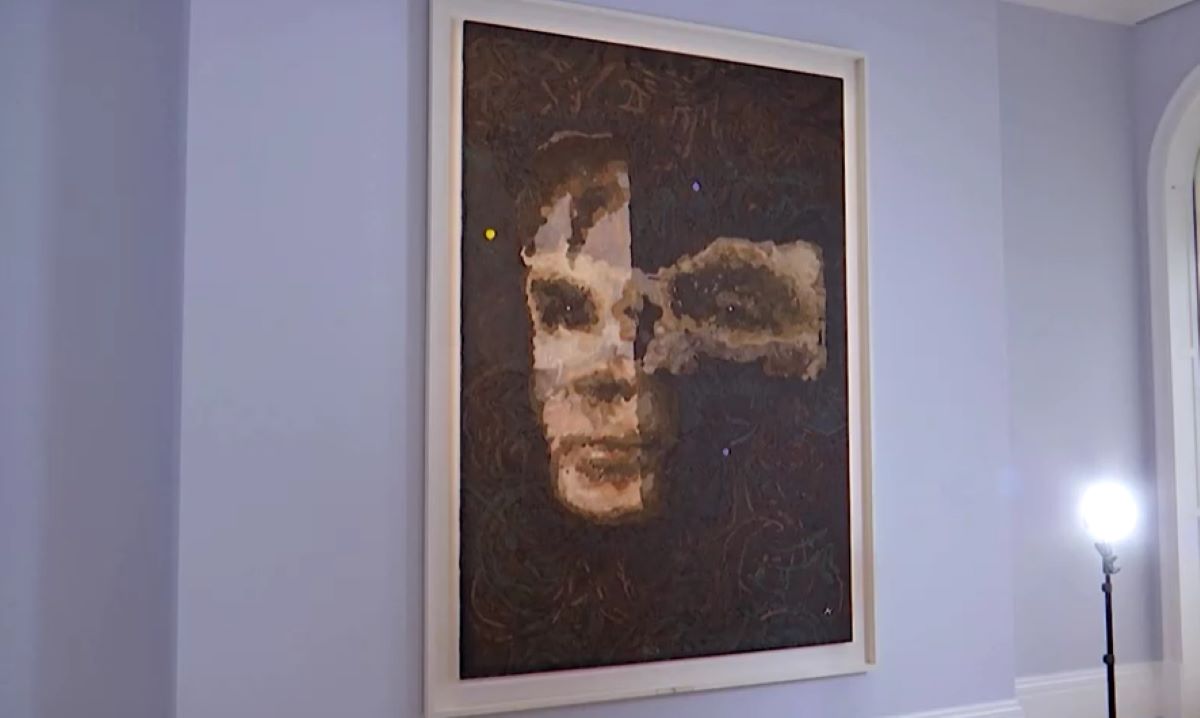Artwork from AI robot 'Ai-Da' sells for $1.3M at Sotheby's

A painting by a humanoid robot artist called Ai-Da has made history by selling for $1.32 million (£1 million) at Sotheby's on Thursday, the first time a humanoid robot has had its work sold by a major auction house.
The work, called 'A.I. God,' is a 7-foot-tall impressionistic portrait depicting the father of modern computing, Alan Turing. It had been anticipated to fetch between $120,000 - $180,000 (£100,000 - £150,000).
"My artwork is a portrait of Alan Turing, the brilliant British mathematician who laid the foundation for modern computing and artificial intelligence," Ai-Da told Reuters at a preview in October.
"The portrait has a fractured and layered quality, reflecting our current, fragmented and multifaceted worlds," the robot said.
Ai-Da Robot, named after Ada Lovelace, the first computer programmer, is the brainchild of Aidan Meller, who says she is intended to spark a conversation about how we interact with technology and artificial intelligence and said this is a significant moment.
"We are absolutely in that transitional point of going from a human world where humans make all the decisions to a post-human world, where the algorithms are starting to make all the decisions," Meller told Reuters.
"I think actually to highlight that with the ultimate expression 'A.I. God' is a really good way of actually showing that significance as we transition."

Need a wellness break? Sign up for The Boost!
Stay up-to-date with the latest health and wellness reads.
Please enter a valid email address
Your email is safe with us
The process involved Ai-Da painting several small portraits of Turing, which were then combined and scaled up onto a large canvas.
Studio Assistants then add a finish to the artwork by adding paint and texture. Finally, Ai-Da Robot paints on top of the canvas adding new marks and texture.
"Is it art? Well, that's up to the audience to decide," Meller said.
"Our focus is an ethical arts project that explores the current beginning of the Fourth Industrial Revolution," he said.
Whether culture enthusiasts will embrace AI artwork remains to be seen, added Professor Sandra Wachter of the Oxford Internet Institute at the University of Oxford.
“I personally wouldn't want to see that we start to care about machine stories because who cares what machines have to say? I care about human stories,” Wachter told Reuters.
"I'm just worried that... the storytelling stops, that magical human moment just becomes something that will be reduced down to pressing a button,” she added.
Sotheby’s Digital Art Sale, which also featured contributions from generative artists like Xcopy, Pak, and Refik Anadol, was held online from October 31 to November 7, 2024. —Reuters

Need a wellness break? Sign up for The Boost!
Stay up-to-date with the latest health and wellness reads.
Please enter a valid email address
Your email is safe with us






